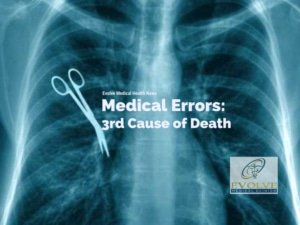The Importance of Addressing Medical Accidents
Medical accidents, also known as medical errors or adverse events, are unfortunate occurrences that can have severe consequences for patients and healthcare providers alike. These accidents can range from misdiagnosis and medication errors to surgical mistakes and hospital-acquired infections. It is crucial to address and learn from these incidents to improve patient safety and prevent future occurrences.
The Impact of Medical Accidents
Medical accidents can have a significant impact on patients, their families, and healthcare providers. Patients may suffer physical and emotional harm, experience prolonged recovery times, or even lose their lives as a result of these accidents. Families can be burdened with the financial and emotional costs of dealing with the aftermath. Healthcare providers may face legal consequences, damage to their professional reputation, and emotional distress.
Causes of Medical Accidents
Medical accidents can occur due to a variety of factors, including:
- Inadequate communication between healthcare providers
- Lack of standardized protocols and procedures
- Human error, such as fatigue or lack of training
- Equipment malfunction or failure
- Poor coordination of care
It is important to note that most healthcare professionals strive to provide the best possible care, and medical accidents are often the result of systemic issues rather than individual negligence.
Preventing Medical Accidents
While it is impossible to completely eliminate the risk of medical accidents, there are steps that can be taken to minimize their occurrence:
1. Improve Communication
Effective communication among healthcare providers is essential for patient safety. This includes clear and accurate transfer of information between different departments, as well as effective communication with patients and their families. Implementing standardized communication protocols and encouraging open dialogue can help reduce the risk of misunderstandings and errors.
2. Enhance Training and Education
Continuous training and education for healthcare professionals can help improve their skills and knowledge, reducing the likelihood of errors. This includes staying up to date with the latest medical research, attending relevant workshops and conferences, and participating in simulation-based training exercises.
3. Implement Quality Improvement Programs
Healthcare organizations should establish quality improvement programs that focus on identifying and addressing potential risks and errors. This can involve conducting regular audits, analyzing adverse events, and implementing changes to existing protocols and procedures based on lessons learned.
4. Embrace Technology
The use of technology, such as electronic health records and computerized physician order entry systems, can help reduce medication errors and improve overall patient safety. Healthcare organizations should invest in reliable and user-friendly technology solutions and ensure that healthcare professionals receive proper training on their use.
5. Foster a Culture of Safety
A culture of safety is essential for preventing medical accidents. This involves creating an environment where healthcare professionals feel comfortable reporting errors and near-misses without fear of retribution. Encouraging a blame-free approach and promoting teamwork and collaboration can help foster a culture of safety.
The Role of Patients and Families
Patients and their families also play a crucial role in preventing medical accidents. Some steps they can take include:
1. Be Informed
Patients should educate themselves about their medical conditions, treatment options, and potential risks. They should ask questions and seek clarification from their healthcare providers to ensure they have a clear understanding of their care plan.
2. Advocate for Themselves
Patients should feel empowered to speak up and advocate for their own safety. If something doesn’t seem right or if they have concerns about their care, they should voice them to their healthcare providers. It is important for patients to be active participants in their healthcare decisions.
3. Keep Track of Medications
Patients should maintain an updated list of their medications, including dosage and frequency. They should share this information with all their healthcare providers to avoid medication errors or adverse drug interactions.
4. Follow Up on Test Results
Patients should follow up on any test results or diagnostic procedures to ensure that they receive appropriate and timely care. It is important to communicate with healthcare providers and address any concerns or questions that may arise.
Dealing with a Medical Accident
In the unfortunate event that a medical accident occurs, it is important to take the following steps:
1. Seek Medical Attention
If you believe you have been a victim of a medical accident, seek immediate medical attention. Your health and well-being should be the top priority.
2. Document Everything
Keep detailed records of all medical treatments, conversations with healthcare providers, and any expenses related to the incident. This documentation will be valuable if you decide to pursue legal action or file a complaint.
3. Consult with a Legal Professional
It is advisable to consult with a legal professional who specializes in medical malpractice to understand your rights and options. They can guide you through the process and help you determine the best course of action.
4. Report the Incident
Report the incident to the appropriate authorities, such as the hospital’s patient safety department or the relevant regulatory body. By reporting the incident, you contribute to improving patient safety and holding healthcare providers accountable.
Conclusion
Medical accidents are unfortunate events that can have serious consequences. By addressing the causes of these accidents, implementing preventive measures, and fostering a culture of safety, we can work towards minimizing their occurrence. Patients and their families also have a role to play in advocating for their own safety. In the event of a medical accident, seeking appropriate medical attention, documenting everything, consulting with a legal professional, and reporting the incident are important steps to take. Together, we can strive for a healthcare system that prioritizes patient safety and minimizes the occurrence of medical accidents.
